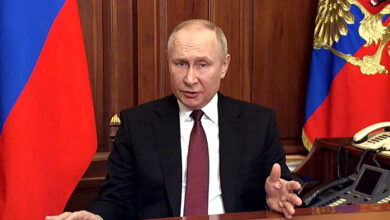U.S. businesses are preparing for emergencies in Taiwan despite the tensions with China.

Tensions with China are hurting more and more businesses, and almost half of those asked by the American Chamber of Commerce (AmCham) in Taiwan are changing or plan to change their business continuity plans as a result.
Since Nancy Pelosi, the former speaker of the U.S. House of Representatives, paid a visit to Taipei in August, China, which sees democratically governed Taiwan as its own territory, has increased military exercises across the Taiwan Strait.
According to a survey released on Tuesday by AmCham Taiwan, which was conducted between November 15 and December 16, 33% of respondents said the rise in tensions had “significantly disrupted” their operations, up from 17% in a flash survey the organisation conducted in August immediately following China’s start of war games.
Related: U.S.-China tensions and Fed worries hurt Asian stocks.
Between August and December, it found that “personal worry” about rising military action or tensions stayed the same, but 47% of businesses said they have updated or plan to update their business continuity plans “to match the changing geopolitical context.”
“We are aware that businesses are starting or renewing their operational contingency planning initiatives. “We are aware of this,” Andrew Wylegala, president of AmCham Taiwan, told reporters.
AmCham Taiwan said that 214 of its 437 members responded to the December survey. One-third of companies said that they were affected by increased concern or policy changes from their global headquarters. This was followed by increased shipping, insurance, or financial costs and staff anxiety.
More than half of respondents indicated that cross-strait relations should be the government’s top priority in the upcoming three years, while political uncertainty was seen as the main barrier preventing members from making additional investments in Taiwan.
The group has demanded an ambitious agenda to hasten economic cooperation with Taiwan through a new framework for Taiwan-U.S. trade discussions and ultimately a bilateral trade agreement, though it expects quicker progress.
Related: Bankers say that China’s latest IPO reform probably won’t cause a flood of new offerings on the market.
“The United States and Taiwan are now engaged in engagements.” “There wasn’t any a year and a half ago,” said Wylegala. “There is a hope and anticipation that things will move more quickly.”





